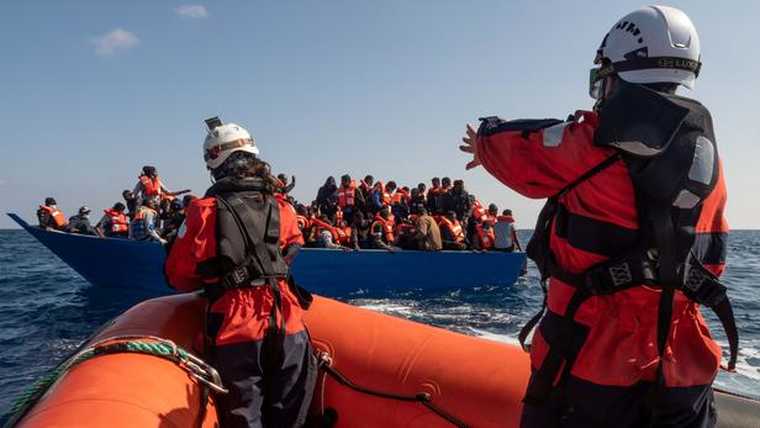By: V4 Agency
Around 8,000 migrants arrived from Morocco to Spain’s autonomous north African enclave of Ceuta. The town’s reception centres are overcrowded so, according to eyewitnesses, most of the migrants were simply roaming the streets trying to steal or loot. Police received around 200 criminal complaints in one day alone and the army has been deployed to restore order.
Migrants have reached the Spanish city of Ceuta in record numbers. Since Monday, more than 8,000 immigrants have flooded into Spain’s autonomous north African enclave.
Migrants entered Ceuta from the neighbouring country of Morocco. Many of them swam or paddled across in dinghies at low tide, while some of them climbed over the fence or rocks along the pier on the border.
According to press reports, the city’s reception centre is overcrowded and most of the migrants are roaming the streets freely, some trying to steal and loot. On Tuesday police were forced to intervene, because of violent incidents involving clashes between migrants. Police also took action as migrants failed to respect physical distancing or mask-wearing rules, and refused to go into quarantine. On Tuesday night authorities received around two hundred calls, with residents reporting burglary and robbery attempts, and brawls.
To restore order and avoid further riots, the city has mobilised the its Civil Guard officers to petrol the streets and the border, while the defence and the interior ministries have authorised the deployment of the army at the request of the exclave’s leadership. The military is assisting police in guarding the borders and maintaining law and order. The army’s presence has led to a decline in migrant departures from Morocco.
Around 4,800 of the eight thousand migrants who arrived until Tuesday evening have immediately been repatriated to the other side of the border. However, the at least 1,500 minors are protected by Ceuta’s laws, and cannot be sent back in a simplified procedure.
Prime Minister Pedro Sanchez arrived in Ceuta on Tuesday night to be briefed on the situation in person. However, he was received by a crowd of angry locals who staged violent demonstrations, blaming the government for the crisis and the loss of their sense of security.
According to press reports, the cause of the crisis may be a diplomatic conflict that unfolded in April, when the Spanish government secretly transported the biggest enemy of the Moroccan government, the head of the Polisario Front – which fights for the independence of Western Sahara, currently belonging to Morocco – to a Spanish hospital for treatment. Back then, the Moroccan government warned Spain that the move could have consequences, but whether the African country allowed the migrants to cross into Ceuto on purpose remains unclear.

